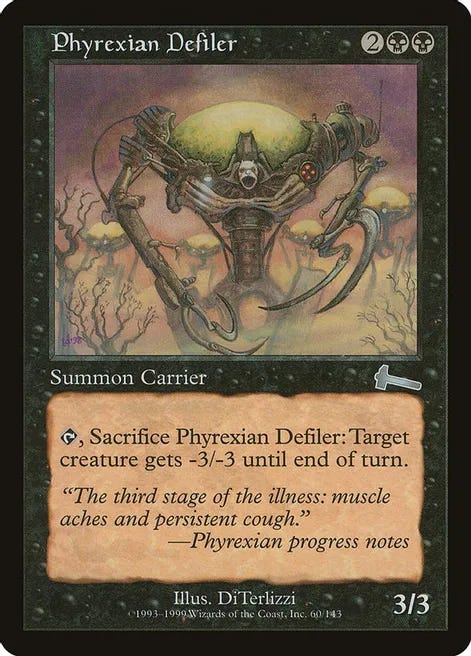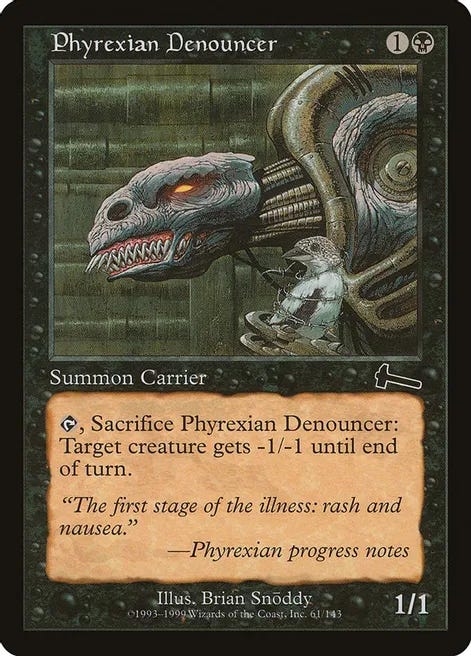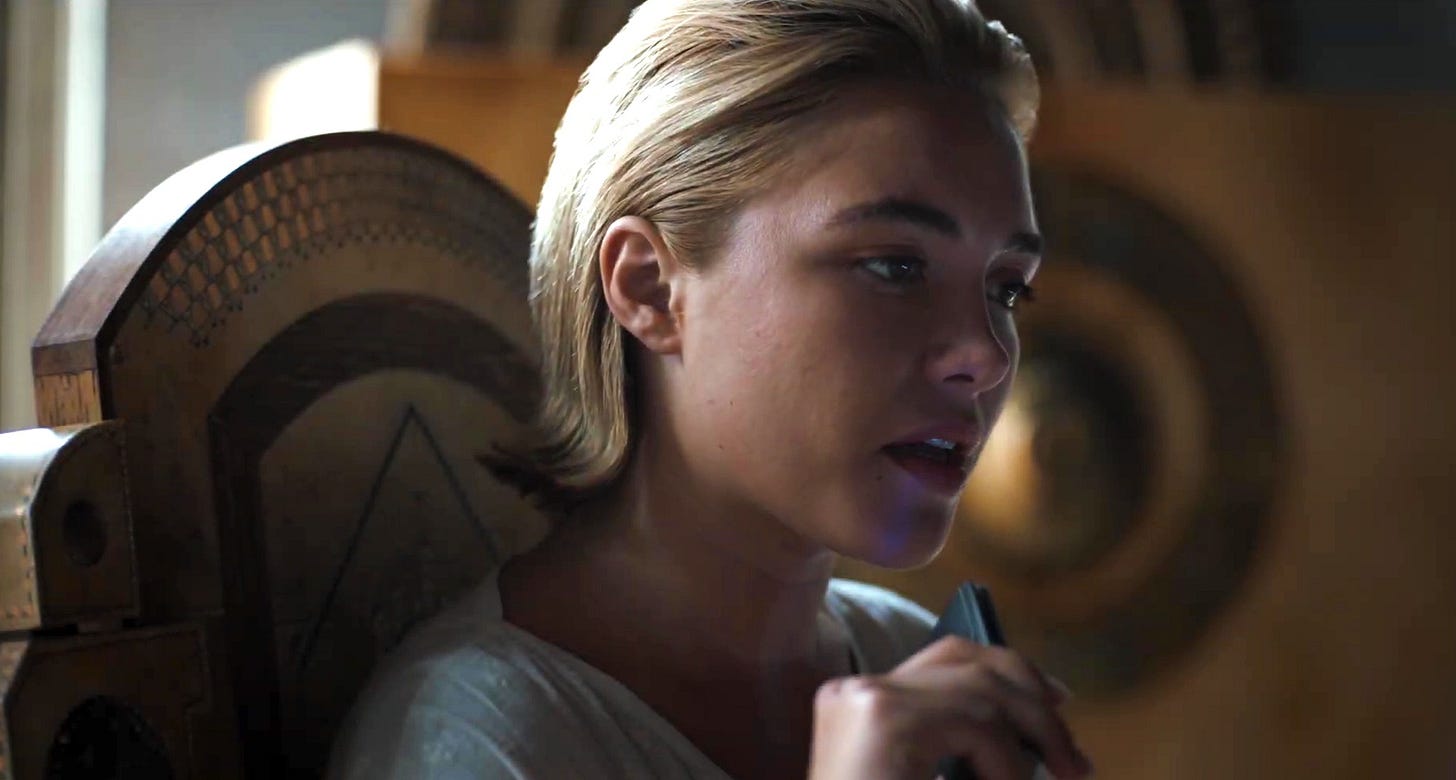Fictional histories: from Dune to Magic: The Gathering
A things heat up for the crew of the Sol on Calibray in episode four, we take a look at the act of creating fictional histories
The Calibray Job is a sci-fi/horror novella I’m serialising here on Altered Narrative. This is the behind-the-scenes commentary for the fourth episode. Read The Calibray Job, Episode Four: ‘Making Friends’ here.
“Deep in the human unconscious is a pervasive need for a logical universe that makes sense. But the real universe is always one step beyond logic.” So begins Frank Herbert’s monolithic science fiction work, Dune. It is a quote, the book says, ‘From collected sayings of Maud’Dib by The Princess Irulan, an in-universe piece of history.
George R. R. Martins's Fire and Blood is another example of an in-universe history, albeit one that takes a much (much) longer form. It is a fictional account of the brutal history of House Targaryen as written by various Maesters of the Citadel.
Fire and Blood, an entire novel, is simply an act of world-building but its construction makes it feel like so much more. Just as Herbert’s epigraphs from the works of Princess Irulan hint at the wider universe beyond the pages of the story, so does Martin’s fictional history. Do you need to read it to understand Dune or Game of Thrones? No, probably not. But you’d be missing out if you didn’t.
If you’ve been reading Altered Narrative for a while then you’ll know that I’ve been slowly building out the lore behind The Yesterday Saga. Through brief fragments of world-building, I’ve been attempting my own version of what Martin and Herbert did with their fictional histories.
But I wanted to take the idea further. Episode three opens with the following quote; “Into the wilds of Calibray they went, searching for oblivion.” It is attributed to the character Fenrah Roak and their book Mapping The System. Roak’s identity isn’t important, at least not to the immediate story. What interested me about the idea of including a quote like this is how it hints at the wider universe beyond the immediate narrative.
Lunaris [Lore]
Building off the short story ‘Birth’, the first lore story in The Yesterday Saga introduces the capital moon Lunaris. “Such sights to see in that great, glistening city.” Appearances: ‘Birth’ Welcome to Lunaris, the seat of the ruling Thousands Sun Council and the capital of The System. A moon in orbit around the planet Hellan, Lunaris was first settled ov…
Of course, this was heavily inspired by Dune and The Left Hand of Darkness by Ursula K. LeGuin, which does something similar, but I also had another source of inspiration in mind. In Magic: The Gathering, many of the cards come with so-called ‘flavour text’ that hints at the card’s place in the wider story of Magic’s multiverse. I’ve always been fascinated by the flavour text in Magic, in some cases more than the cards themselves.
Flavour text takes many forms. Lines of dialogue, humorous one-liners and, of course, quotes from in-universe histories. One of my favourite recurring pieces of flavour text is the ‘Phrexian progress notes’. For those unfamiliar with Magic, Phyrexians are a species of cyborgs whose ultimate goal is to infect the multiverse with a mechanised virus, thus converting all life.


The ‘Phyrexian progress notes’ detail the effects of the Phyrexian virus on the infected. Across four cards, the brutal body horror of Phyrexia unfolds, building on the card artwork to create something that festers in your mind, not unlike the virus it describes.
Flavour text like this is often ignored by all but the die-hard MTG lore fans like myself. But these short sentences help to lend context to individual games much the same way that Princess Irulan’s quotes lend context to each chapter of Dune.
World-building within the text of your story is important, of course. Organically building out history through narrative and character is always the best way to introduce your readers to your world. After all, most people who play Magic will only look at the art and the card mechanics so it’s important that they can convey the details of your world on their own. But why not add in more for those who are willing to dive deeper? Why not throw open the doors to your Citadel or archive or databank for those who seek further knowledge?







![Lunaris [Lore]](https://substackcdn.com/image/fetch/$s_!LHi_!,w_1300,h_650,c_fill,f_auto,q_auto:good,fl_progressive:steep,g_auto/https%3A%2F%2Fsubstack-post-media.s3.amazonaws.com%2Fpublic%2Fimages%2Fbc03149c-9026-4b11-9c6d-adb6d9e94e79_1280x720.png)
Yeah, subtle details can really enhance worldbuilding and can be as important (or more so) as overt exposition.
MtG flavour is so good. I really admire some of the wit and detail that they can cram into such a short amount of card real estate.